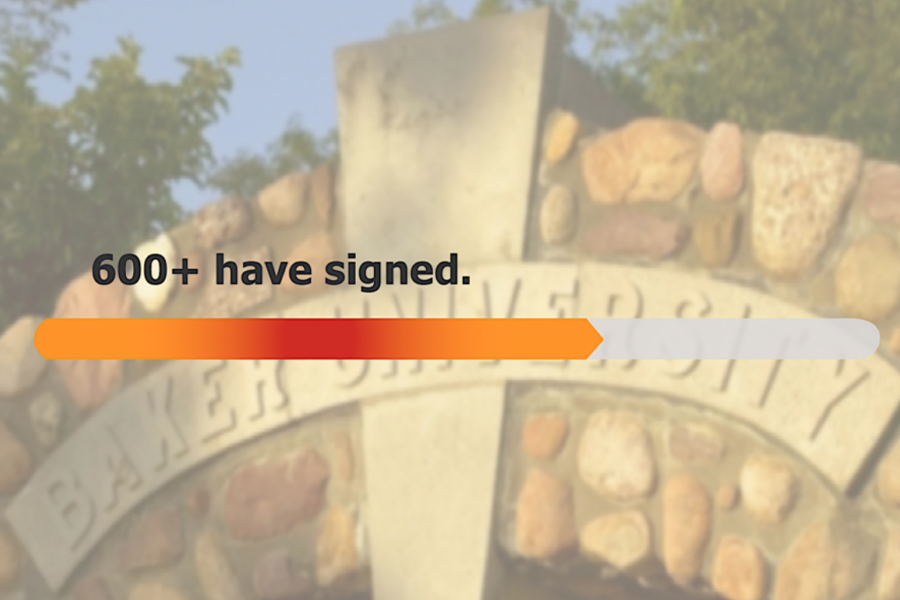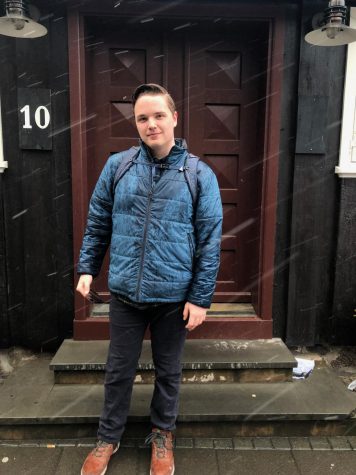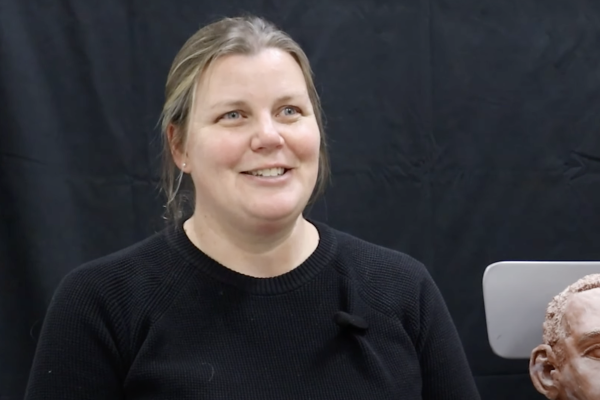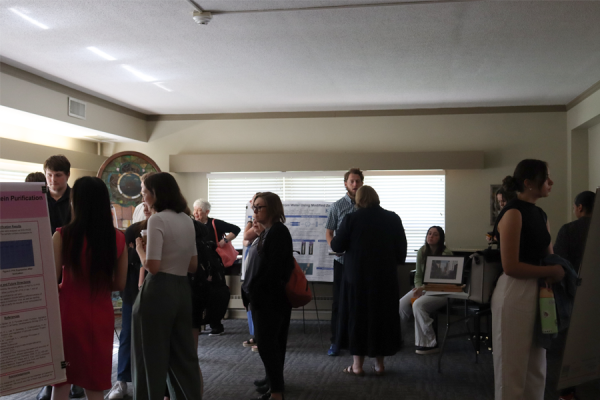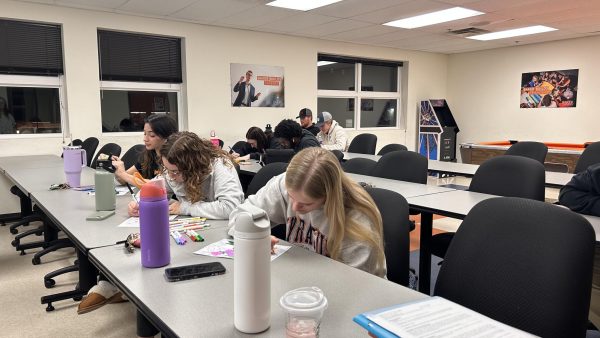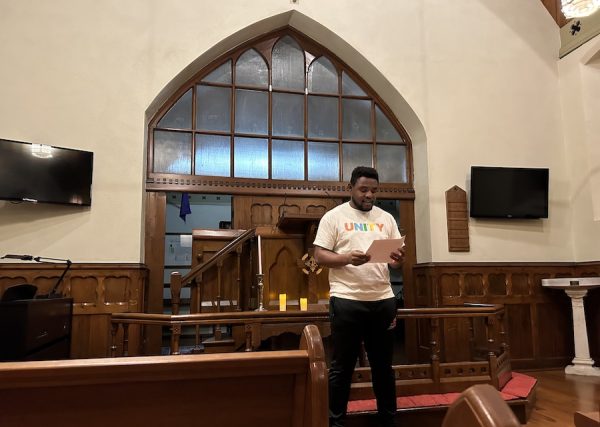Alumni petition requests transparency for questions left unanswered
Alumni create a petition to request answers in regards to financial concerns following the reduction and reallocation process.
March 25, 2021
In response to recent coverage on Baker University’s reduction and reallocation process, concerned alumni created a petition to demand transparency from university leadership to better serve the needs of the school and its budgetary requirements. The petition, created on Feb. 25, is titled “Baker University demands accountability and transparency from its leadership.”
The petition is specifically addressed to the Baker Board of Trustees and Baker University President Lynne Murray.
Created by the Wildcats for Education Committee, the petition was shared with students and alumni after its inception and currently has over 600 signatures. Several questions were raised about financial findings, the athletics budget and the impact of reduction and reallocation on student experience.
Members of the Wildcats for Education Committee, and members of the larger alumni community, have raised concerns about the University’s financial transparency in light of an ever growing endowment coupled with recent cuts to academic programs. The Committee asks how the University plans to grow the endowment to secure a long-term future for Baker and how the alumni community can help advance areas in need.
In a video published on March 2, Murray states that in the past six years, the endowment has grown over $10 million. Murray adds that endowment is a strong gauge of the University’s financial health and building the endowment has been one of her top priorities during her administration.
The Forever Orange Campaign is the most ambitious fundraising campaign to date with a goal of $28 million and a deadline of May 2022. One of the campaign’s top priorities is acquiring contributions to the Baker Fund, which are “unrestricted gifts to meet the university’s most immediate needs and fund its greatest strengths and new opportunities.”
The petition also calls for answers on how the University intends to end the Committee’s perceived imbalance of recruiting students for athletic programs rather than academic programs.
The Committee questions the dichotomy between reduced academic programs and growing athletic endeavors. Recent athletic department plans include recruiting players for a future lacrosse team and improving and expanding athletic facilities for the first time since 2006.
Director of Athletics Nate Houser explained that the athletics department does not draw from funds outside of their designated budget. All funds utilized for facility improvement and expansion outside of the athletics budget have been raised by private donors.
Additional questions posed by the petition include how Baker leadership can continue to offer exceptional educational experiences for all students. Specifically, with student opportunities like study abroad.
In the wake of news regarding reduction and reallocation efforts, rumors regarding reductions to other programs continue to spread within the student body. Student concern recently arose regarding potential budgetary changes to the study abroad program. It was assumed that changes were a part of reduction and reallocation efforts.
Vice President of Finance and Administration Shelley Kneuvean refuted these claims, stating that any changes to the program were not related to the decisions of reduction and reallocation, but normal budgetary actions.
For students who choose to study abroad for a semester, Baker provides an institutional aid scholarship of $5,000. Due to a decrease in the number of students studying abroad per semester, the number of scholarships budgeted for was reduced to a total of 10 per year. Since 2017, the highest number of students studying abroad in one academic year is eight.
“We know that we may have more students this next year wanting to study abroad since these programs were cancelled this fall and cut short last spring due to COVID-19,” Kneuvean said. “We are committed to making sure all students that want to study abroad are able to in the coming year even if it exceeds 10.”
In order to gain a better understanding of the financial nuances, the Committee requested that the university become more open about financial needs.
The petition calls on University leadership to host an open town hall to answer questions and discuss solutions in regards to financial obscurity. On Mar. 9, the Committee submitted a letter to the editor reiterating their desire for open dialogue. In that letter, the Committee expressed a desire to ensure that “cutting programs and faculty positions does not become a decade ritual.”
Kayla Anderson, class of 2012, graduated with a Bachelor of Arts in International Studies and History with a minor in Spanish. Anderson began as a political science major before the program was cut in response to the 2008-2009 economic crisis. As a result, Anderson was forced with the difficult decision of choosing whether to change her major or to transfer to another school.
Anderson found refuge among faculty members within the History department, which persuaded her to stay and declare a new major. Having been directly impacted by reduction and reallocation at Baker in the past, Anderson was passionate about the current situation and chose to join the Wildcats for Education Committee.
“While I understand that it makes financial sense to cut academic programs that do not perform well, to cut programs which are integral to any liberal arts education is incredibly disappointing,” Anderson said.
Carrington Ream, class of 2020, shares the Committee’s disappointment in the lack of financial transparency. Although Ream understands that the COVID-19 pandemic has affected higher education at a national level, she is disheartened to see the University forfeit beloved faculty members.
“It is disappointing that faculty—who, in my opinion, are one of the main reasons why alumni love Baker—are having to pay the price of lack of financial revenue,” Ream said.
Ream questions the University’s priorities and believes that recent actions leave students at the bottom.
“I don’t think I’m the only one who has felt like we are seeing the true priorities of the school,” Ream said. “Which, unfortunately, does not seem to be the students nor the faculty, but rather money.”
In response to student and alumni concern, Vice President of Academic Affairs Marcus Childress explained that the University has taken steps toward fiscal responsibility to prevent severe efforts of reduction and reallocation from happening again.
“By making wise investments, thanks to our Board of Trustees, by building the endowment so that we may continue to offer scholarships and professorships even during the toughest of times, and by being fiscally responsible, we are doing all of the right things to prepare Baker for the future,” Childress said.
Childress added that the Board of Trustees underwent restructuring this past year to review operations, effectiveness and “intentional revitalization.” These efforts postponed regular committee meetings until February. This postponement overlapped with decisions regarding reduction and reallocation in January.
Internal Board restructuring resulted in a new committee, the Academic and Student Affairs Committee, which allows representation from University deans, directors and faculty across all of Baker’s campuses in Board meetings.
Students and alumni continue to await answers to several questions posed by the petition in regards to reduction and reallocation. Childress believes that the petition and recent alumni engagement represent the passion that the Baker community has for the University.
“I hope that the passion behind the petition is used for good and also that the writers will make themselves known as requested so that real dialogue can happen,” Childress said.
Anderson stated that the Committee’s concerns stem from a deep care and concern for Baker and wishes for it to survive and thrive for generations to come.
“We fully believe that Baker University is one of the premier liberal arts schools in the Midwest because of its long history of providing a diverse and enlightening curriculum,” Anderson said. “We are all very passionate about the humanities and we want to make sure Baker knows it has alumni that are fighting to keep these programs.”



